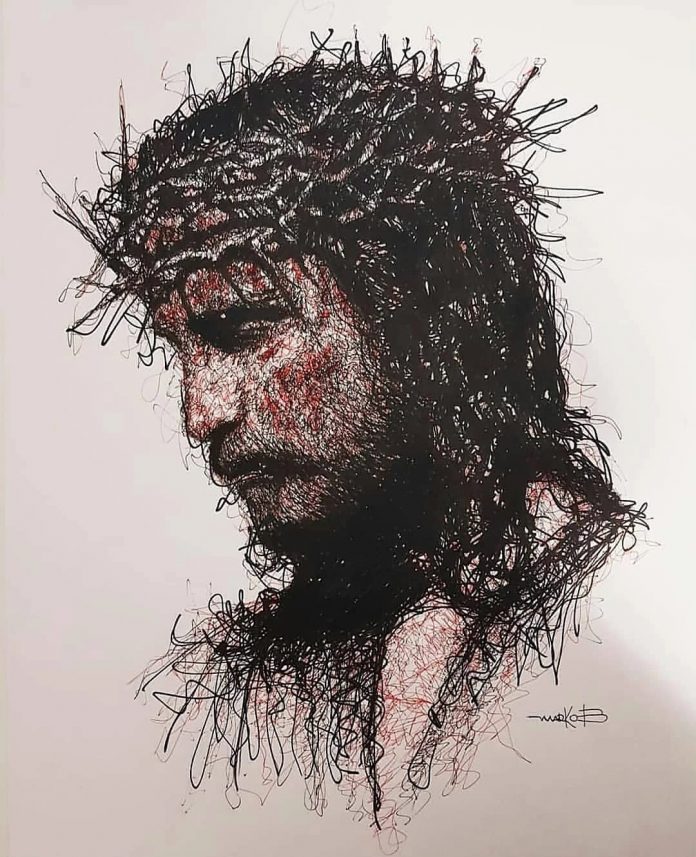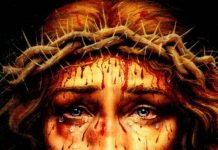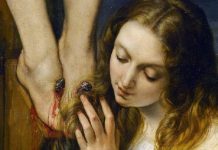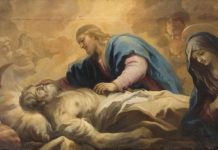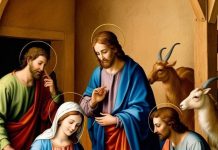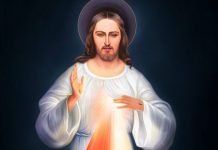After a brief interval, we are once again at the study of the Book of Revelation. In the last session, we were discussing the church in Philadelphia, the perfect one among seven churches mentioned in Revelation. Today we are coming to the seventh and last in the series, the church in Laodicea.
Laodicea was a city situated some six miles from Philadelphia. At that time it was a prosperous city with flourishing enterprises in banking and entertainment. Laodicea was famous for the manufacture of black shiny clothes. The city was wealthy to the extent that in the early years of the first century, they even refused the financial help offered by the emperor to rebuild their city which was destroyed by the earthquake! Laodicea also finds a mention in Aristotle’s writings as a place famous for treating diseases affecting the eyes. It is said that they used a particular kind of soothing salve in the treatment. Though wealthy, Laodicea was not having a regular source of water to cater to the needs of its residents. As a solution, they decided to bring water from the nearby hot springs through aqueducts. They did get the water, but unfortunately, by the time the hot water reached Laodicea, it had lost its heat and became lukewarm!
It is in this backdrop that Jesus calls the church in Laodicea lukewarm. The water sourced from the hotspring was hot indeed. But it lost its most valuable attribute midway. In a similar way, though the Laodiceans started their spiritual journey with faith and zeal, by the time John was writing to them, their Christian life had turned lukewarm; neither hot nor cold.
As usual, Jesus starts with a self introduction, this time declaring that he is the faithful and true witness, the origin of God’s creations, the Amen. Finding nothing deserving of appreciation in Laodicea, Jesus reserved the harshest of words for their church. Jesus warns them that if they fail to mend their ways, he will be compelled to spit them out of his mouth! We can imagine how pathetic it would be for a church, or for that matter for a person, to be expelled from the presence of the Lord.
Now, we need to go a little deeper. How did the Laodiceans become lukewarm in faith? A few things will help explaining it. First of all they were self sufficient. They were so confident that they never thought of asking any help from others, be it the emperor himself. If a false sense of self sufficiency and trust in their own wealth and resources prevented them from seeking the help of their emperor, it is no wonder that the Laodiceans did not care much about the help coming from God as well.
Self sufficiency leads to self deception. Perhaps this is one thing that brought the Laodiceans such a severe admonition from Jesus. Let us see what was our Lord’s complaint about the church in Laodicea. ‘For you say, ‘I am rich, I have prospered, and I need nothing’ (Rev 3:17). This is a classic example of self deception arising from a false sense of self sufficiency. Now see, how the Lord reacts: ‘You do not realize that you are wretched, pitiable, poor, blind, and naked’ (Rev 3:17). Laodiceans saw themselves as perfect, needing nothing from others, not even from God. It was their self assessment. Now turn the mirror to us and think. Are we also like the Laodiceans, living under the false sense of self assessed righteousness?
True perspective will never come from a self assessment, because it will be biased in our favour at all times. True perspective is how the Lord sees us. In the case of Laodiceans, the Lord found them wretched, pitiable, poor, blind and naked! It is only when we realize our shortcomings that we will think of its remedies. For the Laodiceans, it required a blunt reprimand from the Lord to wake them up from their slumber. What about us?
Jesus is not the kind of person who leaves the scene after presenting his complaints. He always suggests remedies as well. In the case of the church in Laodicea, Jesus’ prescription reads; ‘Therefore I counsel you to buy from me gold refined by fire so that you may be rich; and white robes to clothe you and to keep the shame of your nakedness from being seen; and salve to anoint your eyes so that you may see’ (Rev.3: 18). Jesus has made it clear that the riches that Laodiceans were proud of are not worth in his eyes; the black shiny clothes they made would not suffice to keep the shame of their nakedness before God; and that the salve they made would not help them see God. The only way to become rich in the eyes of God is to attain a character shining like pure gold. And pure gold is made by treating it with fire. Yes, those who are ready to go through fiery ordeals, will earn true wealth. As for our robes, we should trade our black ones stained by sin with the fresh white robes of grace that God gives us free. Laodicea may be famous for the salve they make to soothe the eyes, but Jesus is the true doctor who gives sight to the blind. Without mincing words, Jesus tells them that they needed a total conversion.
Refined gold, white clothes and salve; all stand for the need to return to the Lord and trust in him rather than our own strength. In a nutshell, it is a call to repent. Jesus is more forthright in suggesting them the path of repentance, as we can see in these verses; ‘I reprove and discipline those whom I love. Be earnest, therefore, and repent’ (Rev.3:19).
Next comes one of the most beautiful verses in the whole Bible; ‘Listen! I am standing at the door, knocking; if you hear my voice and open the door, I will come in to you and eat with you, and you with me’ (Rev 3:20). In spite of all those negatives that he said about the church in Laodicea, Jesus is still there, standing at the door, knocking. But they never knew it. Any person from the church could open the door to Jesus. A priest, a pastor, a husband, a wife, a father, a son, a mother, a daughter; anybody can open the door to Jesus. Once he comes inside he will dine with us. Sharing the food is one of the best ways to express our intimacy and love towards others. Jesus knew it well. That is why he waited by the Sea of Tiberias with a breakfast prepared for his dear disciples. “Come and have breakfast” (Jn 21:12).
Jesus’ table is laid for us. His banquet is ready. He is waiting at our door to invite us for the great banquet. He keeps on knocking. But we fail to recognise that somebody is standing at our door and that it is Jesus Christ himself knocking. If we listen to his call and open the door he will eat with us. If we stop deceiving ourselves and open our eyes to see what our Lord has prepared for us, we will be blessed. It is Jesus’ promise that the one who conquers will share a place in his throne just as he himself conquered and sat down with his Father on his throne!
Let us conclude this session with a pledge to open our hearts to Jesus so that he may open heaven to us.


